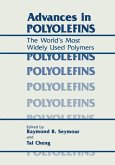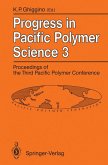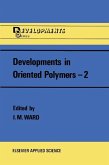Chemical modification of polymers by reactive modifiers is no longer an academic curiosity but a commercial reality that has delivered a diverse range of speciality materials for niche markets: reactively grafted styrenic alloys, maleated polyolefins, super-tough nylons, silane modified and moisture-cured polyolefins, and thermoplastic elastomers, are but few exam ples of commercial successes. Although the approach of reactive modification of polymers has been largely achieved either in solution or in the solid state (through in situ reactions in polymer melts), it is the latter route that has attracted most attention in the last two decades owing to its flexibility and cost-effective ness. This route, referred to as reactive processing, focuses on the use of suitable reactive modifier(s) and the adoption of conventional polymer processing machinery, an extruder or a mixer, as a chemical reactor, to perform in situ targeted reactions for chemical modification of preformed polymers. This relatively simple, though scientifically highly challenging, approach to reactive modification offers unique opportunities in exploiting various reactive modifiers for the purpose of altering and transforming in a controlled manner the properties of preformed commercial polymers into new/speciality materials with tailor-made properties and custom-designed performance for target applications. Such an economically attractive route constitutes a radical diversion away from the traditional practices of manufacturing new polymers from monomers which involves massive in vestments in sophisticated technologies and chemical plants.
Dieser Download kann aus rechtlichen Gründen nur mit Rechnungsadresse in A, B, BG, CY, CZ, D, DK, EW, E, FIN, F, GR, HR, H, IRL, I, LT, L, LR, M, NL, PL, P, R, S, SLO, SK ausgeliefert werden.









